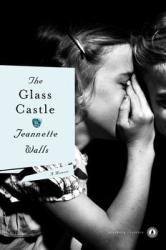
The book The Glass Castle is an autobiography by Jeanette Walls, going through her hectic life and how she handled everything. I liked this book, but it's about a really sensitive topic, and it could go through a lot of overwhelming and gross details towards the middle of the book, so I recommend for more sensitive readers not to read this. I picked this book because I saw that we had to read it in school, so of course, I wanted a little peek of what it was about. The start of the book was more calm, but readers could start to tell that her family isn't the way it's supposed to be. Throughout the book, there will be a lot of surprising and unexpected events, most not very wanted. I wouldn't say I "enjoyed" the book because that would sound wrong, but I felt the need to keep reading, seeing what happens next. I feel like a lot of students could relate to Jeanette. Maybe our conditions might not be as bad as hers, but readers could feel luckier and safe to be living a better life. But overall, I do recommend this book to less sensitive readers.
Reviewer Grade: 10
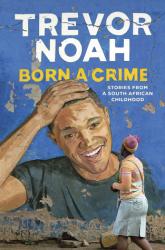
This story explains what it was like to be born a crime. Trevor Noah is the child of a South African mother and a European father, which in South Africa, was illegal. Trevor has to learn how to stay positive with a racist government in control. This book does an excellent job explaining what it was like to grow up during Apartheid. Overall, I really enjoyed reading this book because despite the bad circumstances, this book made me laugh a lot.
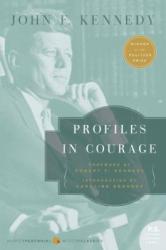
This book contained a lot of wisdom from a president’s point of view and was a very useful insight into his perspective. I appreciated the many different stories about many different historical figures and their trials, however, i did notice a strong bias against others and their perspectives. If i was to recommend this book to someone else, I would advise them to be careful about taking every word he says to heart, as he doesn’t phrase things from a neutral perspective. Overall i enjoyed the book, but it should be read by people looking for insight, not as an entertaining or exciting book. Though it may not have been thrilling or suspenseful, overall it was really good.
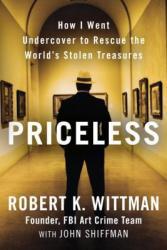
Are you a fan of true crime novels? Do you just love the excitement, the suspense of solving mysteries? Or do you like art and the masters like Leonardo de Vinci? This book is for you. Well on the outside this book might just seem like another true crime story it is really different. I always liked crime novels and tv shows and I was and still am interested in the work organizations like the FBI do to prevent crime. This book has a different approach to your classic true crime novel by not just focusing on how the FBI solves murders but by focusing on how one man (the author) went undercover in the FBI to help recover some of the world's most famous stolen art pieces. It centers around his life and shows other things than just his cases, like how he was suspected of killing his friend. It also tells the story of how he founded the FBI's Art Crime Team. Well this book may not be for everyone if you like a good true crime book this book may work for you. It is slow in parts but makes up for that by telling stories that seem absurd to realize actually happened.
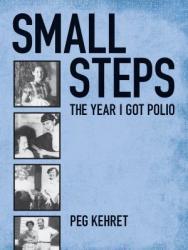
In this amazing autobiography, Peg tells the story about how she got polio and cheated death. When Peg found out she had polio her life changed. When she got to the hospital, she was terrified! When Peg meet her roommates, she realized that this was not the end of the world. She fights her battle with polio and wins it with the help of doctors therapists and her family. This book will entertain with ages from 6 to adult! I defiantly recommend this to read is your looking for a short great read.
Reviewer Grade: 7
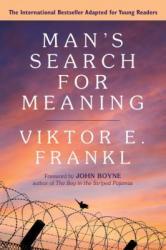
Man’s Search for Meaning gives a rare perspective on life during the Holocaust. Psychiatrist Viktor Frankl was forced into four different labor camps during WWII, and ultimately survived, while his family members were all slaughtered. Most books from the Holocaust are centered around horror stories from prison camps, and the sheer brutality of one of human history’s most devastating genocides. Frankl gives the psychiatrist’s view on life after camp and works to answer one essential question - how do we move on from grief? He recounts the moment he was free to leave as confusing - almost more shocking than freeing. What do you do after your entire family is killed? Where do you go after being released from a death camp hundreds of miles from home?
The book’s storytelling is devastating and beautifully crafted, and its exploration of humanity’s search for lives worth living - lives significant for the individual - has become one of America’s most influential pieces of literature. The book is heartbreaking, but so is any story worth telling. It has everything to be expected from such a terrifying chapter in our history, but what makes it so unique is the way it addresses life after the terror ends. Anyone wanting to search for meaning in their own lives, or at the very least get a new perspective on the Holocaust, needs to read this.

Over time, I've found Bill Bryson's books are hit-or-miss for me. I enjoyed his memoir about childhood, The Life and Times of the Thunderbolt Kid , and it was A Walk in the Woods: Rediscovering America on the Appalachian Trail that introduced me to Bryson in the first place. However, since then, I've struggled to find something that's lived up to those two books. At Home: A Short History of Private Life came close, but I was really turned off by I'm a Stranger Here Myself: Notes on Returning to America After Twenty Years Away. Ultimately, I hoped Neither Here Nor There would fit the bill, but it disappointed me once again.
Perhaps Bryson's travels in Europe weren't interesting to me because I haven't been over there myself. Most of the details in this book felt like they would only be understood by someone who knew what Bryson was talking about because they had experienced the same thing. I did appreciate the dueling retrospective look at Bryson's life between his younger days to when he was older and wiser, but most of the focus seemed to be on remembering when he was a young man (and all the negative foibles that come with it).
In the end, Neither Here Nor There doesn't really have anything to say. The author went to Europe and visited the same places twice. That's it. For those looking for some deep philosophical examination of Europe or a comparison of how it's better/worse when compared to the United States, you might end up being disappointed. Sure, there's some of that in here, but it's so light that it merely glances off the main plot of the literal traveling of Europe. It probably doesn't help that much of the humor in this book hasn't aged well either.
Bill Bryson's travel log from his trips to Europe, I give Neither Here Nor There 3.0 stars out of 5.

After reading If I Understood You, Would I Have This Look on My Face? , I decided to add some other Alan Alda books to my reading list. Months later, I finally got around to listening to the audiobook for Things I Overheard While Talking to Myself. I appreciate that Alda was the narrator, as he already has such a great voice for narration. That being said, there are a few aspects of this book that were likely lost in the translation to audiobook format.
As a celebrity, Alan Alda was invited to speak at many graduation ceremonies for many decades. This book is a collection of some of the speeches he gave at these events. While there are certainly gems of wisdom spread throughout this book, many of the same points are reiterated from speech to speech, making it slightly repetitive after a while. Also, if you don't happen to agree with some of his political views, you might not find some of the speeches particularly interesting. Despite all this, if you can glean some useful advice out of these speeches, then it was worth the read.
One thing I had trouble distinguishing in the audiobook version was where the speeches started and ended and where Alda's reflections and asides started. I would occasionally notice an echo in the recording, which likely indicated that it was one of his speeches. I think the echo was trying to replicate the sensation of listening to Alda in a large space (like the ones used for graduations), but it was so faint as to be indistinguishable from the rest of the book. I appreciate the attention to detail, but it could have been a little stronger.
Some useful graduation advice from Alan Alda, I give Things I Overheard While Talking to Myself 3.5 stars out of 5.
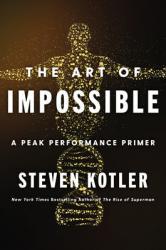
As the title would suggest, "The Art of Impossible", by Steven Kotler, prescribes a regime for achieving what he calls the "Infinite Game". In other words, achieving goals to continually improve, even in ways that might be considered impossible. Kotler depicts what top performers do on a daily, weekly, and yearly basis, and even adapts such habits into ways the average reader can understand and implement them. And while he does so in a systematic and understandable fashion, he also goes in-depth into the science behind each of the things he says. Although it sometimes gets deeply analytical, it never stops being intriguing. There are some parts that aren't completely family friendly, but the content remains solid.
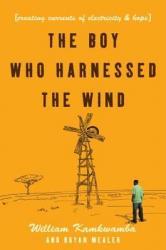
This book is one of the most inspirational stories I've ever read. The journey put forth, following William, is truly a gem that makes you think about what could've happened if something had been different. I loved reading it because I felt every details of William's journey to develop his windmill that put him on fame. His determination to prove that science is 'real' and can make a difference, especially during a time and in a culture that rejects it, shows his character and his want for a better life in his land. He perseveres through the struggles of drought and hunger, and overcomes the ridicule thrown from all sides to be able to rise up and rise above, and make his visions come true. A really inspirational story, that shows a hero's journey in a way not usually thought.
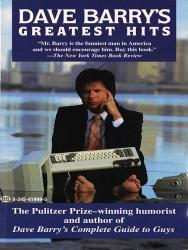
Dave Barry’s slapstick comedy has never been funnier than it is in Dave Barry’s Greatest Hits. It is filled with the funniest columns of his career, and they are certain to please. Barry’s style of humor will make even the sternest of audience chuckle, and it is sure to brighten your day. I enjoyed this book very much, and it has helped me through some stressful times. I would recommend it to anyone in need of a pick me up, or just looking to have a couple laughs.
Reviewer's Grade: 11
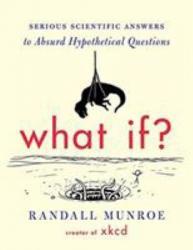
What If? by Randall Munroe is an amazing series of completely impossible and extremely strange scientific questions that are answered with complete scientific accuracy, and a bit of humor. Munroe takes questions people ask over the web and applies physics, chemistry, and other sciences to answer the questions. One of my favorite hypotheticals is what would happen if everybody pointed a laser pointer at the moon? Munroe approaches this by slowly increasing power, until the moon’s surface explodes, and it propels itself away from earth. The hilarious and entertaining questions can provide fun for anyone with an interest in science, and I would recommend it to anyone who’s thought of an impossible hypothetical question.
Reviewer Grade: 11
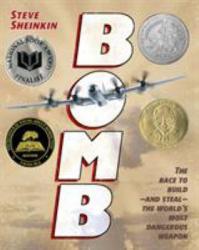
Bomb: The Race to Build—and Steal—the World’s Most Dangerous Weapon by Steve Sheinkin is a must-read for history buffs everywhere. It features the history of nuclear science, including the first nuclear reactors and the building of the initial Manhattan Project team. It follows the progress of the Manhattan Project, while also detailing US and Soviet efforts to prevent German bomb development. It speaks of the heroism of commandos destroying enrichment facilities, and the long nights pulled by sleep-deprived scientists, as well as the fantastic power of the first Trinity tests. I enjoyed this book very much and would recommend it to anyone with an interest in nuclear or WWII history.
Reviewer Grade: 11
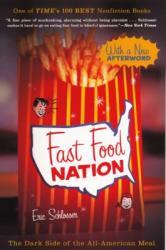
Fast Food Nation is a nonfiction book that is extremely informative about the fast food industry. The book starts with the history of fast food and then informs the audience of business deals, the horrors of fast food, and ways the fast food industry affects others. I picked this book because I wanted to know the truth to what happens in the fast food industry and all of the gross things that are done to the food. Fast Food Nation has several local and state references from Cheyenne Mountain to Greeley, Co. I really liked this book since it was outstandingly educational about every aspect of the fast food industry such as the meat industry, fast food employees, advertising, food poisoning and more; however, I would have liked it more if it went even more in-depth about all the ways the food is handled. Overall, I recommended this book if you want a good nonfiction read and if you want to be more educated about the five to ten dollar meal you buy frequently.
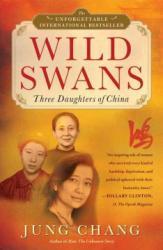
Jung Chang recalls the experiences of her grandmother, her mother, and finally herself, all in distinct eras of China in Wild Swans. While the book is about Chang's family and the hardships they faced under changing authorities, the account is just as much about the consequences of ideologies, and how our loyalties shape who we are. Chang describes the brutalities of Japanese occupation, as well as the callous nature of China under Mao Zedong. The book is slow at first but becomes thrilling with the rise of Mao, and Chang's detailing of life under Communism. Highly recommended for those interested in learning more about China in the twentieth century.

The Happiness Advantage is a wonderfully helpful book. Through many staggering statistics, Shawn Achor proves beyond a doubt that a positive mindset is essential for success and well-being. In addition, Achor's seven simple practices are easy to implement and will have a drastic impact in your career and personal life. This book is also easy to read and quickly moves from point to point so as not to be too repetitive. Whether you are a student, well into your career, or are retired, this book can have a dramatic effect on your life. I highly recommend this book to everyone.
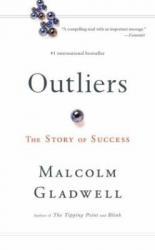
Malcolm Gladwell takes a unique perspective on success in Outliers. Rather than focusing on the brilliance, innate talent, or incredible work ethic of successful people, Outliers concentrates on the advantages and unique opportunities surrounding the successful. Gladwell analyzes the culture, families, generation, and the upbringings of many successful people and groups of people from Bill Gates and successful New York lawyers to Canadian Hockey Players and airline pilots. Above all, Gladwell emphasizes that the truly successful do not do it alone, and Outliers encourages people to examine their own opportunities and advantages so that they too may become successful. I thoroughly enjoyed this book and highly recommend it for everyone.
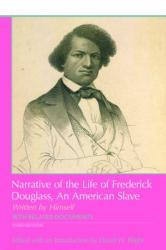
The Narrative of the Life of Frederick Douglass, an American Slave by Frederick Douglass illustrates Douglass's life during slavery in Maryland and his attempts to make it to freedom. This narrative demonstrates the horrific situations/events and the terrible way slaves were treated throughout the time period of slavery way deeper than the average history text book. The narrative is extremely informative about life's of slaves since it goes into specifics about slaves being born, their living quarters, amounts of food, the masters, etc. It is very difficult to relate to or know exactly how a slave was treated in this time period; however, this book allows readers to understand the hideous and fearful actions that were taken against these human beings. This narrative brought tears to my eyes and shocking expressions to my face when reading certain real events that took place. Overall, I really enjoyed this book and it was extremely well written because it allowed me to see more than what is taught in an American History class because Frederick Douglass goes so in-depth about his experiences in slavery throughout the narrative.
Reviewer grade: 11
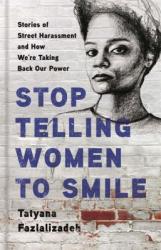
In this anthology, Fazlalizadeh shares interviews with twelve women in cities all across America about street harassment and sexual objectification, and describes her efforts to use art to communicate the pain that these encounters cause. Many girls and women can relate to her descriptions catcalling and degrading encounters, and this book confronts these discussions head on, forcing them to the forefront of conversation and refusing to let you ignore them. It gives a voice to people that are often silenced, and demands that the reader confront their own silence on the issues she describes.
I read this book as part of a research project I'm doing on gender, and am currently working on a section on objectification, especially when it comes to women. This book summed up a lot of the common encounters and the dangers of the world they create for both women and men. It gave words to people who may not have felt like they had the words before. And coupled with the poignant illustrations and quotes on every page, the book is simply beautiful to read. I think everyone should hear these women's stories, regardless of gender. "Stop Telling Women to Smile" speaks to the powerful truth of the human experience. It refuses to gloss over the pain that many people feel while also offering genuine hope for a more inclusive and kind future grounded in mutual respect.
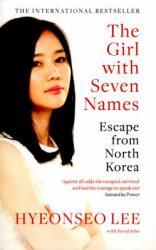
Hyeonseo Lee is a young woman who was able to escape North Korea after years of determination and courage. Lee explains in great detail the brainwashing she and all other North Koreans have gone through and how they continue to be treated by their oppressive government. She also offers an insight into the daily life of a North Korean and thoroughly explains that the indoctrination is not the fault of the people, but the tyrannical governments. At the young age of 17, Lee must leave everything she has known behind as she escapes on her own and makes her way across the North Koreans and Chinese border (intending to make South Korea her final destination). While on the run, Lee realizes that her journey may not be as easy as she expected. Following her successful mission, she is able to flourish even more than she originally envisioned. As you read this book, you'll finally learn why she came to be known as "the girl with seven names."


